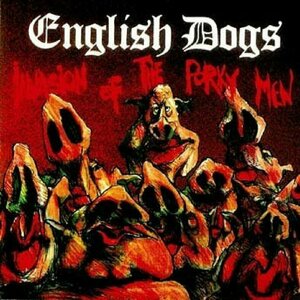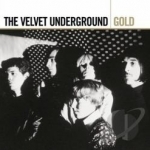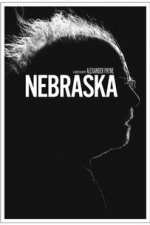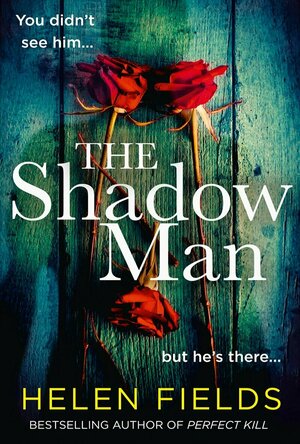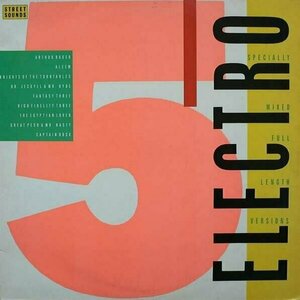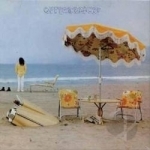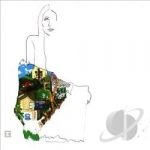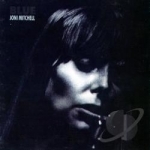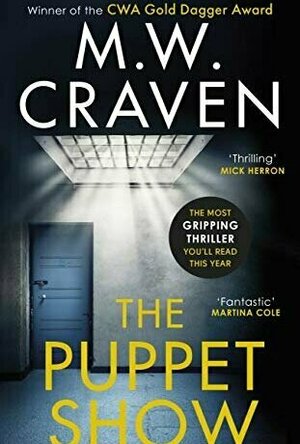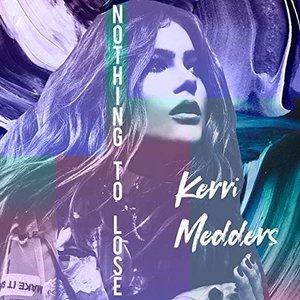Search
Search results
Jason Williamson recommended Mad Punx and English Dogs by English Dogs in Music (curated)
Johnny Marr recommended track Foggy Notion by The Velvet Underground in Gold by The Velvet Underground in Music (curated)
Bruce Dern recommended Nebraska (2013) in Movies (curated)
Ross (3284 KP) rated The Shadow Man in Books
Feb 19, 2021 (Updated Feb 19, 2021)
Good thriller, but not a patch on Fields' other books
This standalone (as far as I know) book sits beside Fields' Luc Callanach (Ava Turner) series, again set in Edinburgh. Other than the brash Chief Superintendent Overbeck, none of those characters are introduced here. Instead, because of the workload of Edinburgh's Major Incident Team, DI Baarda has been called in from London to assist in a murder/kidnapping. Along with him is Dr Connie Woodwine, a brash American criminal psychologist. They are looking into the disappearance of one woman, and quickly link it to the death of another and find that they are on the hunt for someone with issues.
Connie is a fairly stereotypical academic, clinical type as she has virtually no people skills on the surface, issuing demands and attacking conversations head-on in a very un-British way. And yet when we see her interviewing witnesses, such as a young girl who saw a schoolmate be abducted, she is suddenly very tactful and sensitive. In this way, she is both an interesting, complex character, but also a much seen cliched one. She has a tendency to do an awful lot of telling during interviews, explaining to all in the room the theory of her approach to the interview. While this was interesting, it took me right out of the book as something completely unnatural, and read more as a brain dump of the author's research for the book. A little more show, less tell as usual would have worked well here.
Baarda is similarly familiar, a dedicated career cop with marital problems (his wife having an open affair with another officer).
Together, the pair piece together few clues and start to evolve something of a profile for the man who has been kidnapping people. However, I felt this aspect didn't yield results until quite late on, all progress up to that point (next to none) was through standard police work/luck.
The antagonist here was interesting, but nowhere near as dark and mysterious as the blurb makes him sound. We're not talking Hannibal Lecter here, just a confused man with a fairly typical upbringing. Fields essentially cottoned on to an interesting medical/psychological condition and pieced together a plot based on it. While this was enjoyable, it made it somewhat crime-by-numbers.
A good book, but left me longing for Ava Turner's more likable policing style.
Advance reading copy received from the publishers and netgalley in exchange for an honest review.
Connie is a fairly stereotypical academic, clinical type as she has virtually no people skills on the surface, issuing demands and attacking conversations head-on in a very un-British way. And yet when we see her interviewing witnesses, such as a young girl who saw a schoolmate be abducted, she is suddenly very tactful and sensitive. In this way, she is both an interesting, complex character, but also a much seen cliched one. She has a tendency to do an awful lot of telling during interviews, explaining to all in the room the theory of her approach to the interview. While this was interesting, it took me right out of the book as something completely unnatural, and read more as a brain dump of the author's research for the book. A little more show, less tell as usual would have worked well here.
Baarda is similarly familiar, a dedicated career cop with marital problems (his wife having an open affair with another officer).
Together, the pair piece together few clues and start to evolve something of a profile for the man who has been kidnapping people. However, I felt this aspect didn't yield results until quite late on, all progress up to that point (next to none) was through standard police work/luck.
The antagonist here was interesting, but nowhere near as dark and mysterious as the blurb makes him sound. We're not talking Hannibal Lecter here, just a confused man with a fairly typical upbringing. Fields essentially cottoned on to an interesting medical/psychological condition and pieced together a plot based on it. While this was enjoyable, it made it somewhat crime-by-numbers.
A good book, but left me longing for Ava Turner's more likable policing style.
Advance reading copy received from the publishers and netgalley in exchange for an honest review.
Nick McCabe recommended Street Sounds Electro 5 by Various Artists in Music (curated)
Gaz Coombes recommended On The Beach by Neil Young in Music (curated)
Lee Ronaldo recommended Ladies of the Canyon by Joni Mitchell in Music (curated)
Natasha Khan recommended Blue by Joni Mitchell in Music (curated)
BookInspector (124 KP) rated The Puppet Show (Washington Poe, #1) in Books
Sep 24, 2020
Tilly and Poe are an absolutely stunning combo. They are total opposites in everything: age, the way they work, IQ levels, but they make such an amazing team together. I really liked Poe and his personality, he has a great analytical mind and strong determination to achieve justice. However, Tilly was my favourite in this book, she is such a unique and original character! She is full of surprises, and her intelligence and naivety are incredibly refreshing. I really liked the way the author portrayed the different relationships between police personnel, all the politics and territorial fights were very amusing to read about, and gave the sense, that the author really knows what he is talking about. His work experience in the police and life in the Lake District was very well utilized in this book.
The narrative was very creatively written. The excitement in this book comes in waves, we have these calm periods, when it seems that not many things happen, and then the author throws in some great twist or turn, and the whole buzz comes back rushing. I really liked the topics which the author discussed in this book, such as workplace bullying, child abuse, politics in the management, etc. The story was told from a single perspective, bringing in a lot of Poe’s personal emotions. Even though it was sufficient to me, I would love to see how Tilly’s brain works and how she is processing different situations.
The setting of the book is constantly changing between different places in Cumbria, and the detailed descriptions made me feel like I am with Poe on this journey. The writing style was very pleasant with short chapters, which really just flew by. I have to add a little warning, this novel does carry some scenes where people might feel disturbed. The ending was very cleverly written, where it rounded the whole story very well, but at the same time, leaving you questioning of what is going to happen next.
To conclude, I think it is a very intriguing and absorbing thriller, filled with very unique but at the same time believable characters, and the plot, that keeps thickening as you go, engrossing you with all the new findings and leads. It was a true page-turner to me and I can not wait for the second book in the series. If you haven’t read it, please do, I think it is worth the time, and I hope you will enjoy it as much as I did.
The narrative was very creatively written. The excitement in this book comes in waves, we have these calm periods, when it seems that not many things happen, and then the author throws in some great twist or turn, and the whole buzz comes back rushing. I really liked the topics which the author discussed in this book, such as workplace bullying, child abuse, politics in the management, etc. The story was told from a single perspective, bringing in a lot of Poe’s personal emotions. Even though it was sufficient to me, I would love to see how Tilly’s brain works and how she is processing different situations.
The setting of the book is constantly changing between different places in Cumbria, and the detailed descriptions made me feel like I am with Poe on this journey. The writing style was very pleasant with short chapters, which really just flew by. I have to add a little warning, this novel does carry some scenes where people might feel disturbed. The ending was very cleverly written, where it rounded the whole story very well, but at the same time, leaving you questioning of what is going to happen next.
To conclude, I think it is a very intriguing and absorbing thriller, filled with very unique but at the same time believable characters, and the plot, that keeps thickening as you go, engrossing you with all the new findings and leads. It was a true page-turner to me and I can not wait for the second book in the series. If you haven’t read it, please do, I think it is worth the time, and I hope you will enjoy it as much as I did.
Bong Mines Entertainment (15 KP) rated Nothing to Lose - Single by Kerri Medders in Music
Jun 25, 2019
Kerri Medders is a 19-year-old LA-based singer-songwriter and actress from the Lone Star State of Texas. Not too long ago, she released a dreamy alternative tune, entitled, “Nothing to Lose”.
“Walking over Melrose, stumbling out Aroma, I’d go anywhere as long as it’s with you. Talking about the bands we love, Rock ‘n’ Roll, Sex, and Drugs, everything about you is new. Baby you redesigned, you redefined love. Changing all the colors I use. We’re just people with nothing to lose.” – lyrics
‘Nothing to Lose’ tells an adorable tale of a young woman who shares a budding new relationship with her significant other.
Apparently, she’s optimistic about her and her blue-eyed lover’s future. Later, she suggests that they should write down their memorable moments and script it like a movie written for the screen.
‘Nothing to Lose’ contains a relatable storyline and ear-welcoming vocals. Also, the likable tune possesses vibrant instrumentation flavored with indie-rock, alternative, and commercial pop elements.
“The inspiration behind ‘Nothing to Lose’ is the development of a new relationship and the stages of starting a new adventure with another person. You want every hour, every minute, and every second to be spent with that person. Even though those new and strong feelings are scary, it still gives you that feeling that there’s absolutely nothing to lose in loving someone.” – Kerri Medders
‘Nothing to Lose” pays homage to the end of an era in Kerri Medders’ life. That era began in 2014 and includes EP’s Etched (2015) and Lot 17 (2017).
Also, it launched her on a nationwide tour for High School Nation, where she opened for the Plain White T’s and Drake Bell in front of more than 90,000 people.
Since then, Kerri has performed over 70 shows in venues and festivals around the U.S., capturing the hearts of thousands of fans with her energetic stage presence.
“When you come to my show, I want you to be transported to my world. Just leave your worries at the door and take this moment to be with me.” – Kerri Medders
As an up-and-coming actress, Kerri Medders has recurring roles on the Emmy nominated CBS drama, SEAL Team, and the Emmy-nominated Netflix comedy, Alexa & Katie.
Also, she has guest-starred on Gamers Guide to Pretty Much Everything on Disney XD, Mystery Girls on Freeform, and Speechless on ABC.
Not too long ago, she wrapped her first feature film as a lead opposite Jackson Rathbone in Do Not Reply, which will be released later this year.
“Walking over Melrose, stumbling out Aroma, I’d go anywhere as long as it’s with you. Talking about the bands we love, Rock ‘n’ Roll, Sex, and Drugs, everything about you is new. Baby you redesigned, you redefined love. Changing all the colors I use. We’re just people with nothing to lose.” – lyrics
‘Nothing to Lose’ tells an adorable tale of a young woman who shares a budding new relationship with her significant other.
Apparently, she’s optimistic about her and her blue-eyed lover’s future. Later, she suggests that they should write down their memorable moments and script it like a movie written for the screen.
‘Nothing to Lose’ contains a relatable storyline and ear-welcoming vocals. Also, the likable tune possesses vibrant instrumentation flavored with indie-rock, alternative, and commercial pop elements.
“The inspiration behind ‘Nothing to Lose’ is the development of a new relationship and the stages of starting a new adventure with another person. You want every hour, every minute, and every second to be spent with that person. Even though those new and strong feelings are scary, it still gives you that feeling that there’s absolutely nothing to lose in loving someone.” – Kerri Medders
‘Nothing to Lose” pays homage to the end of an era in Kerri Medders’ life. That era began in 2014 and includes EP’s Etched (2015) and Lot 17 (2017).
Also, it launched her on a nationwide tour for High School Nation, where she opened for the Plain White T’s and Drake Bell in front of more than 90,000 people.
Since then, Kerri has performed over 70 shows in venues and festivals around the U.S., capturing the hearts of thousands of fans with her energetic stage presence.
“When you come to my show, I want you to be transported to my world. Just leave your worries at the door and take this moment to be with me.” – Kerri Medders
As an up-and-coming actress, Kerri Medders has recurring roles on the Emmy nominated CBS drama, SEAL Team, and the Emmy-nominated Netflix comedy, Alexa & Katie.
Also, she has guest-starred on Gamers Guide to Pretty Much Everything on Disney XD, Mystery Girls on Freeform, and Speechless on ABC.
Not too long ago, she wrapped her first feature film as a lead opposite Jackson Rathbone in Do Not Reply, which will be released later this year.
